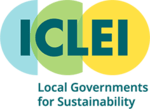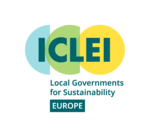Nature for All – Making NBS Education globally accessible and inclusive- #6 NBS EduWORLD UrbanByNature webinar recap
Who can access NBS education and who is left behind? On 3 July, the final (#6) webinar in the NBS EduWORLD UrbanByNature "Nature for All – Making Nature-based Solution Education globally accessible and inclusive"explored this question, examining systemic barriers faced by marginalised groups. Speakers shared insights on creating inclusive learning spaces, valuing local knowledge, and ensuring equitable participation, with tools and case studies for making NBS education accessible to all.
Shreya Utkarsh opened the webinar by framing the importance of inclusive and accessible Nature-based Solutions (NBS) education. She emphasised the need to value diverse perspectives, integrate local knowledge, and address systemic gaps in access and green skills. Her introduction set the stage for the case studies and tools presented, focused on engaging underrepresented groups in NbS learning.
Ingrid Coetzee expanded on the theme by emphasizing the diverse ways NbS are understood across regions and cultures. She highlighted the need to recognise multiple lenses (cultural, geographic, socioeconomic) when approaching NbS, especially in the Global South, where deep-rooted, often undocumented traditions link people and nature. She stressed that inclusive NBS education must address language, narrative control, educational styles, and resource inequalities to truly level the playing field.
Showcasing successful case studies
Cengiz Kasak shared how Turkey promoted NbS through non-formal education. With over 560 youth centers, they reach young people nationwide via workshops, camps, and clubs. A key example is the Ecology Summer Camp, which engaged nearly 100 participants in hands-on, inclusive activities focused on climate, sustainability, and leadership. These efforts aim to integrate NBS into youth policy while empowering diverse youth through accessible, nature-based learning.
Bongiwe Simka discussed the importance of implementing sustainable and nature-based solutions in Africa to tackle urban challenges and promote environmental protection. She emphasized the need for community engagement and cross-sector collaboration to create long-term positive impacts. For example, she highlighted projects involving reforestation and the creation of green spaces that improve air quality, health, and social cohesion, demonstrating practical ways to strengthen environmental and social resilience across the continent.
Practical tools from IN-HABIT
After that, Mar Delgado, Giovanni Russo, and Miguel Luengo from IN-HABIT presented practical tools implemented in four peripheral small and medium-sized cities (Córdoba, Riga, Lucca, and Nitra) and Bogotá as a replicating city, areas often marginalised in policies and R&I strategies. One example is City Pets, a card game from Lucca that teaches about matching dogs’ needs with families and neighborhoods, promoting inclusion and responsible pet care through 110 cards. The game supports learning through play and school activities, creating an emotional connection with students. Another tool was focused on animal care and integrating animals to cities. This one raised awareness of pet necessities, following a methodology designed to create change through feeling, imagining, doing, evolving, and sharing.
Discussion and Conclusion: Challenges and Opportunities
In summary, accessibility remains a major challenge in the creation of inclusive urban spaces, particularly in marginalised communities. Innovative tools like card games demonstrate how play and emotional engagement can promote awareness, learning, and inclusion. Finally, co-design and community participation are key to fostering a sense of ownership and enabling people to actively shape the spaces they live in.
Explore innovative tools with IN-HABIT.
Learn more about NBS Learning with NBS EduWORLD.

Our partners












The UrbanByNature programme is funded by the Horizon 2020 Framework Programme of the European Union under Grant Agreements No. 730222 and No. 776604. It has received funding for an update by the Horizon Europe Programme under the Grant Agreement No 101003818. The sole responsibility for the content of this website lies within UrbanByNature and in no way reflects the views of the European Union.
